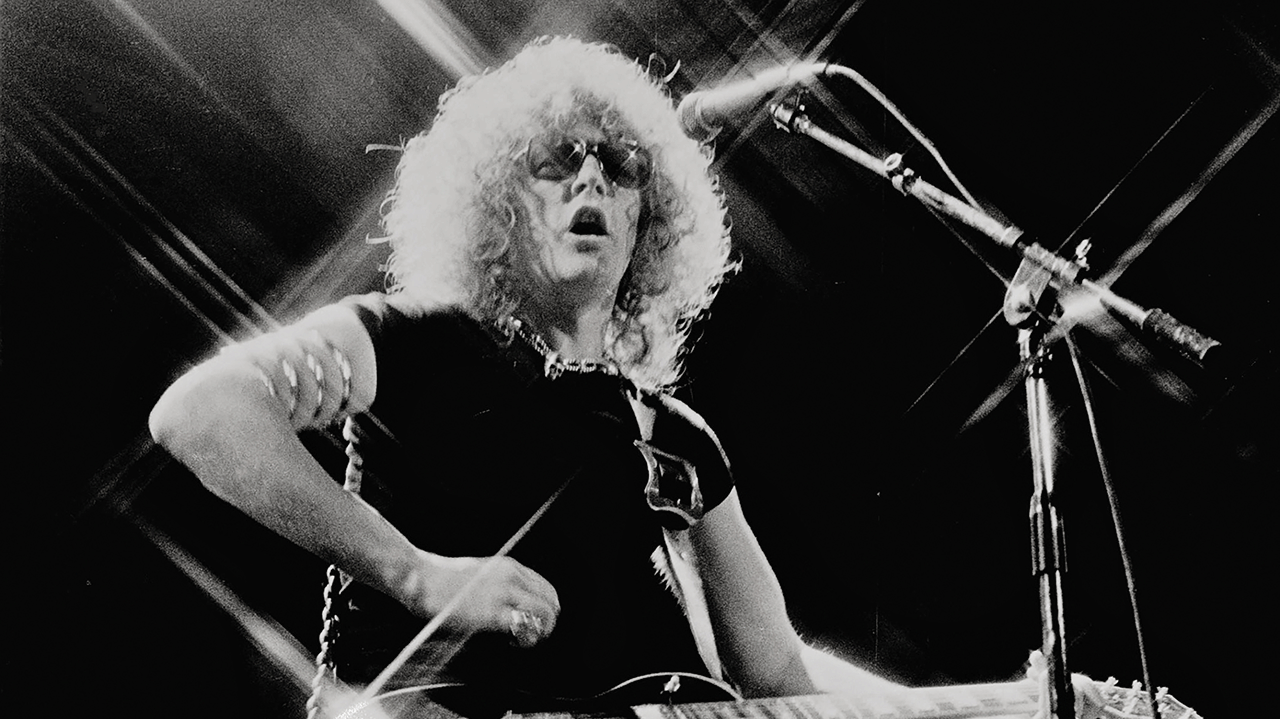In 1972, following a decade of earning his spurs as a journeyman rocker, Ian Hunter had all but resigned himself to the imminent demise of his latest project, Mott The Hoople. Three years and four albums into the quintet’s career they were still pleasing audiences, but with not a single chart hit in the bank their position as a live draw was unsustainable. So they announced that they were to split.
Meanwhile, existing fan, emergent star and empire builder David Bowie begged to differ.
Consequently, Hunter was persuaded to give the band one last try, and so it was that he found himself in Olympic Studios giving voice to an era-defining version of Bowie’s ultimate glam rock statement; an anthem for a generation. But whose?
In the very month that he recorded his vocals for All The Young Dudes, Ian Hunter celebrated his thirty-third birthday.
Ian Hunter Patterson, born in 1939, had hit his teens before rock’n’roll redefined teenage expectations, but rock’s arrival captured his imagination and altered the course of his life. He came of age as rock’n’roll lost its innocence, served a mind-expanding apprenticeship in Hamburg, watched the beat boom give way to mod, saw psychedelia toughen into hard rock, while remaining on the perpetual periphery of stardom. Meanwhile, his life happened. Flat-footedly sidestepping the armed forces draft, skipping one step ahead of debtors, he raised a family by supplementing his unreliable musician’s income with countless blue-collar jobs.
When Mott finally happened, enjoying a fistful of post-Dudes hits before splitting in ’74, he wrote lyrics that chimed with the working man because he’d been the working man. His emotive everyman voice has been maintained throughout an extraordinary solo career that has endured and matured but never once lost relevance. At 77, Ian Hunter is still making records that touch the parts other songwriters have absolutely no idea how to reach.
It’s taken a unique journey to get to the unique place that Hunter holds in rock’s affections. And here, described from behind the shades, is the often circuitous route he took.
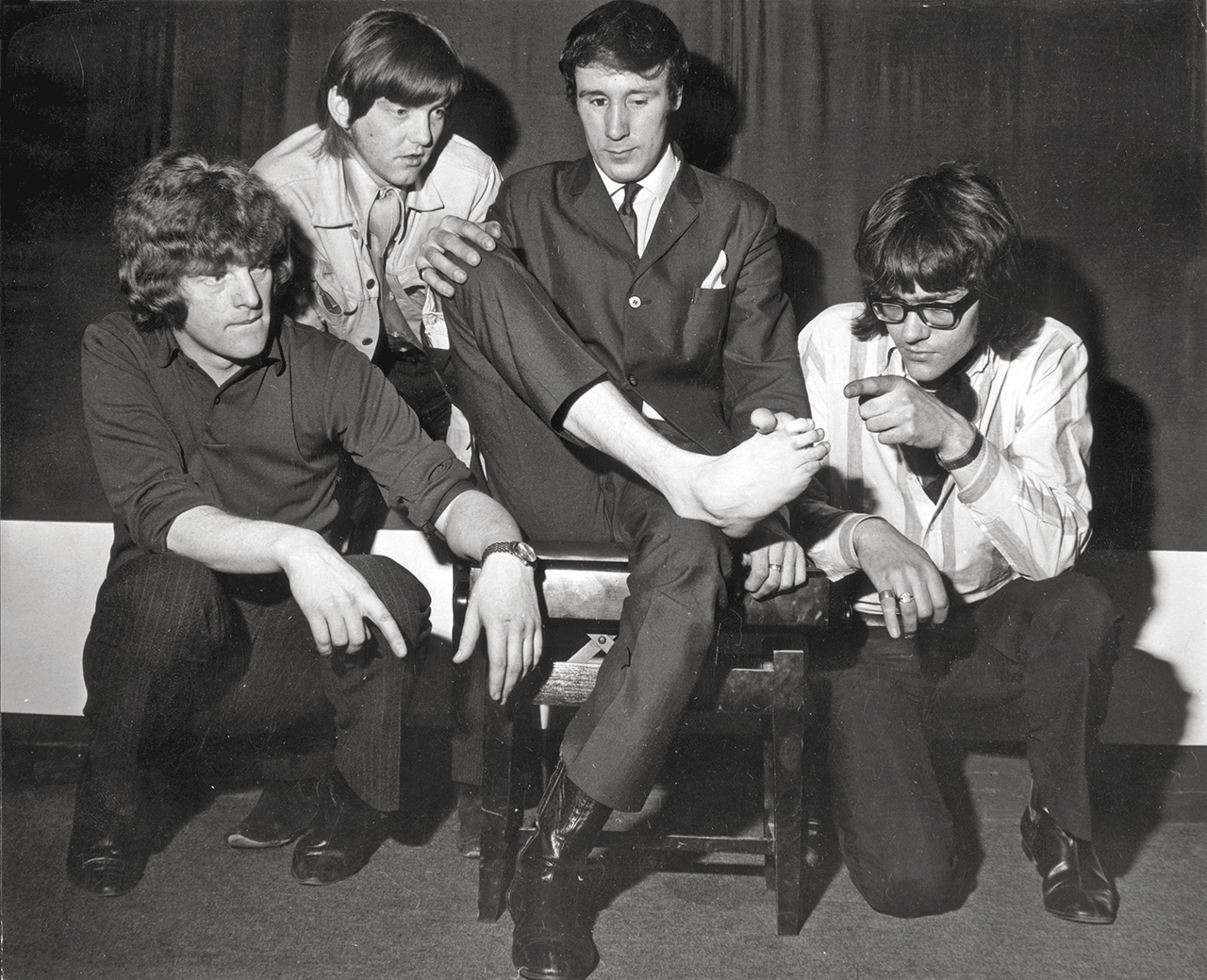
Our story begins, where all the best stories should, at a Butlin’s holiday camp, where your first taste of being in a band occurred when you won a competition playing Blue Moon in an acoustic guitar trio, which ultimately led to you relocating from Shrewsbury to Northampton to join the Apex Group?
I lived in Shrewsbury. Butlin’s was the biggest legal brothel in Britain at the time, so all the guys went. When I was at Butlin’s in Pwllheli I heard what turned out to be Colin York and Colin Broom from Northampton playing guitars in their chalet. I was dead keen on playing so I went and introduced myself. Anyway, we won this talent competition and got a free extra week’s holiday. Which was great, because both Miss Reveille and Miss Titbits came back for the grand finalé week as well. Then everybody got the flu and Butlin’s asked us to stay on site, so no one found out about it. It turned into a bit of a nightmare, but that’s how it started.
I moved to Northampton with these two guys and joined the Apex. Apex weren’t a dance band exactly, but they wore striped jackets and all that, but I didn’t because I was the rebel. We did the American air bases that surrounded Northampton then because they paid forty-five quid and St Mary’s Hall in Northampton only paid eight. It was good to get onto that circuit. That’s when I saw people like Rory Storm And The Hurricanes when Ringo was still with him.
You entered your teens prior to rock’n’roll’s invention of the teenager, so you couldn’t have harboured dreams of growing up to be a rock’n’roll star because Elvis had yet to define that particular career path. So what were your aspirations when growing up?
None whatsoever. The billiard hall and school. When I was fifteen we started hearing about Elvis Presley, which was the weirdest name we’d ever heard, Jerry Lee Lewis and Little Richard. That’s where it all started, because before that I had no personality. I remember thinking I’ve got no personality. So I went up the billiard hall and there was one of the first Teddy boys, who looked extremely cool, so I thought I’d start taking after him a little bit, and started forming a personality.
Where did you go to school?
I lived in a police house and the school was maybe a mile away. Halfway between me and the school was the billiard hall, so the problem was getting around the billiard hall to go the other half a mile to school. Very often I didn’t make it. It was the Priory Grammar School in Shrewsbury. A lousy school at the time. So I got my formative education in the billiard hall.
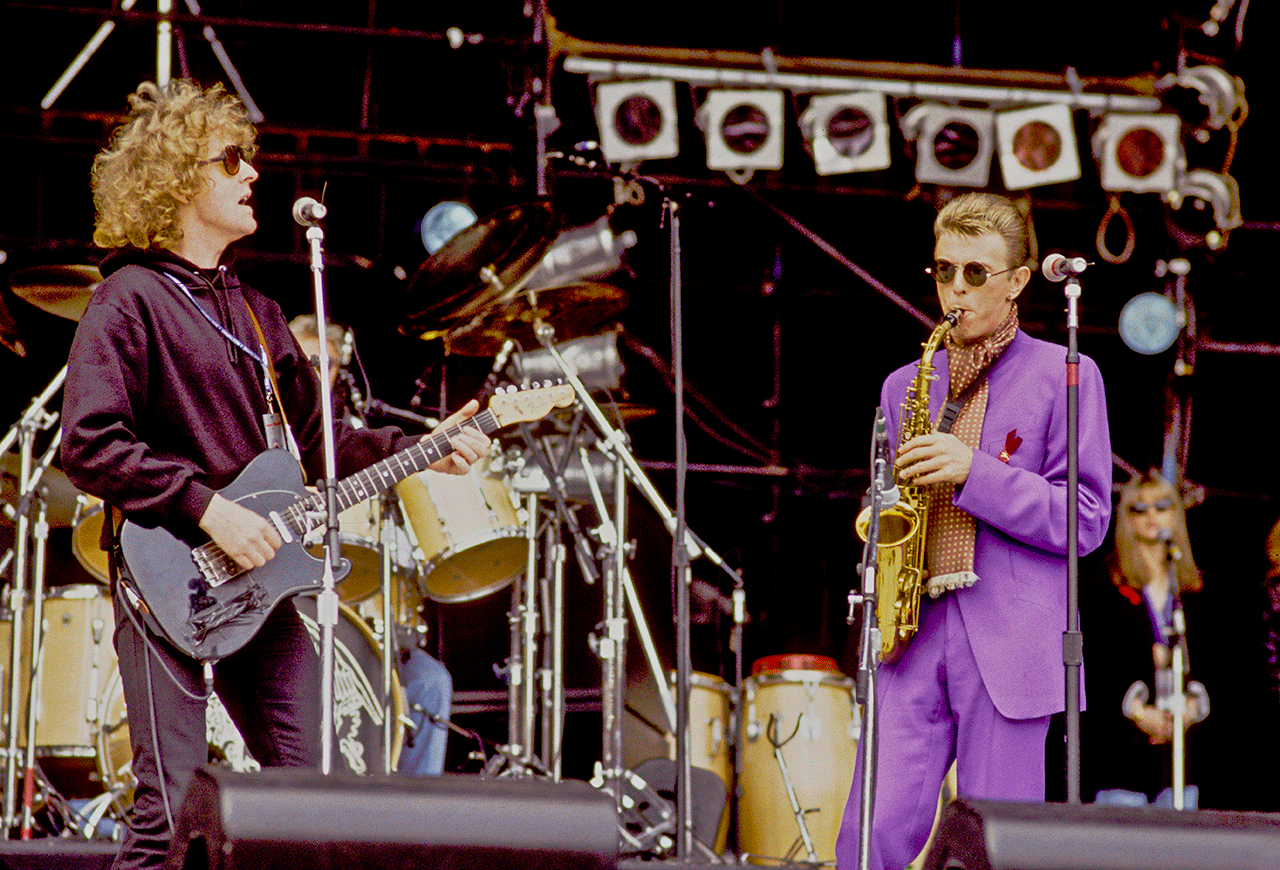
After leaving the Apex Group you played in a few local Northampton bands, but at this point in the late fifties things seem to get a bit sketchy, situations arose that led you to return to Shrewsbury. What was behind that decision?
Hire Purchase. I hadn’t paid it [laughs]. So my dad, who was a cop, was very worried about me. I hung out with people in Northampton who were extremely nice people and everything, but they were villains. So my dad got me out of that and I went back to Shrewsbury. There was a lady involved as well. I had to pay the HP off, basically, which I did. I owed for clothes. I found this shop doing great gear: jackets with no lapels, all that. Somebody said all you’ve got to do is put a fiver down and the rest is history – you move. We all lived in lodgings, so that’s what we were doing, buying stuff and moving. But a bunch of it caught up with me.
On returning to Shrewsbury you formed a harmonica duo. A step away from rock’n’roll, perhaps, but you clearly intended to carry on performing?
There was a harmonica band called Morton Fraser’s Harmonica Gang back in variety days. We saw them and they were great, so we had a harmonica band. I learned how to play bass harmonica, chord harmonica – the very long one – and the chromatic with the semitone slide. I was quite reasonable at it. Then I persuaded them we should be doing a small guitar section. It didn’t go down that well at first.
With Elvis in the army and the airbrushed teen crooners coming up, were you starting to think that rock’n’roll had just been a passing fad and that its time had gone?
We had unfortunate people like Adam Faith over here and I had nothing in common with them. I liked Screaming Lord Sutch who had an incredible band called The Savages, Tommy Bruce And The Bruisers, Jimmy Page was in Neil Christian’s Crusaders. There were some good bands but they never charted. I had nothing against Adam Faith, he was a good actor but a poor man’s Buddy Holly.
You were born just a few months too early to avoid the spectre of National Service. Were you called up?
I was on the cusp, age-wise. I had to go to Leicester. But my feet were bad. They lined you up and you went round six in a row. I was the only one of our six that didn’t go in. One guy had specs like the bottoms of bottles, and he went in. Another guy had a rib sticking out, and they took him, but for some reason feet were frowned upon. I’d have got a driving licence, because they taught you how to drive, so that would have been okay. But shooting people or being shot? That didn’t make any sense to me.
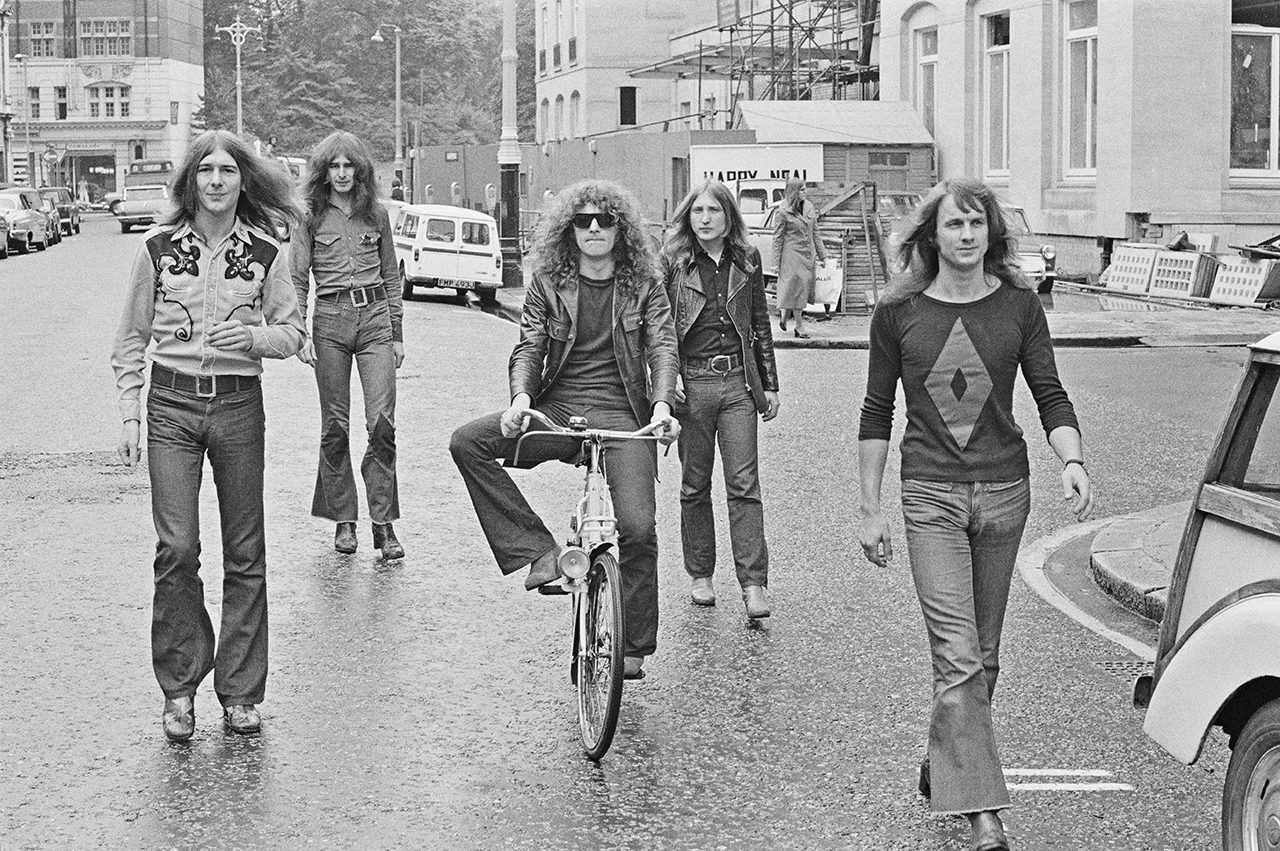
You rejoined Apex in Northampton, then later Hurricane Henry & The Shriekers. By now you had a family, a wife and son. Presumably there were still day jobs in the background. You were properly grafting, which must have taken its toll.
I counted forty-four jobs. I’d go to Hamburg where you could play every night of the week for reasonable money, but that wasn’t consistent, maybe one or two months of the year. The rest of the time you came back and took anything that was going: goods in, goods out, ice-cream wagon (I had no licence so I used to say it was in the mail), gardening, anything. You never got dole, you see. I remember the inspectors came round once, saw the telly and went: “Luxury!” I was living in one room, and I had a black-and-white TV I’d paid twelve quid for out of a second-hand shop, and that was a luxury, apparently. You had to sell that before you’d get dole. You had to go down to zero.
Did London swing for you at all?
We tried. We came down a couple of times, parked the van in Soho Square. I remember going down the Two I’s [coffee bar]. I saw Rory Blackwell with ‘Liquorice’ Locking and Brian Bennett, the rhythm section that were later The Shadows. They were so far ahead of what we were doing in Northampton. I just thought: “This is never going to happen.” They were so much better… London boys.
How was your Hamburg experience with The Shriekers?
It was incredible. I was there two years after The Beatles, playing seven nights a week, twice nightly. There were certain cafés where English guys from all over Hamburg went – jazz guys, rock guys – and you never slept because it was so much fun. I was playing bass, because I was a fan. I never really was a musician.
Then I met this guy Freddie ‘Fingers’ Lee who had been with Sutch And The Savages. He joined The Shriekers and got us to Hamburg. Anyway, I was up and down the E string on the bass until I figured out what the other three were for, and then after seven nights a week in Germany I thought: “Jesus, I might actually make a living out of this as opposed to being a fan.” I was perfectly happy being a fan, but at some point you have to make a living. By now I had two children. And though we were making decent money when we worked, there were times when we didn’t, and there was times when we got screwed over there. Wound up eating toothpaste at one point. You could come back through the British Consulate, but if you did you were then banned from going back to Germany, and you loved it so much that you’d rather starve than go to the consulate and get a lift back.
Presumably the family were back in Blighty?
They were with my parents. I remember I was in Kiel, and the guy there, Manfred, was such a swine. The van had broken down, so I’m up in his office with a knife, and I’m going to kill him. And he’s going: “I’ll give you money …” Now, he had an American assistant, Bob, a nice guy, but if Manfred had said “Kill him” he’d have done it. So he came back with Manfred, who said: “You don’t get no money. Here’s ten pfennigs for a stamp to send to your wife to tell her you’ve sent her nothing.” He went in for manslaughter. A lot of them did. They either died early of heart attacks or they went to jail. Maniacs. But it was great fun [laughs].
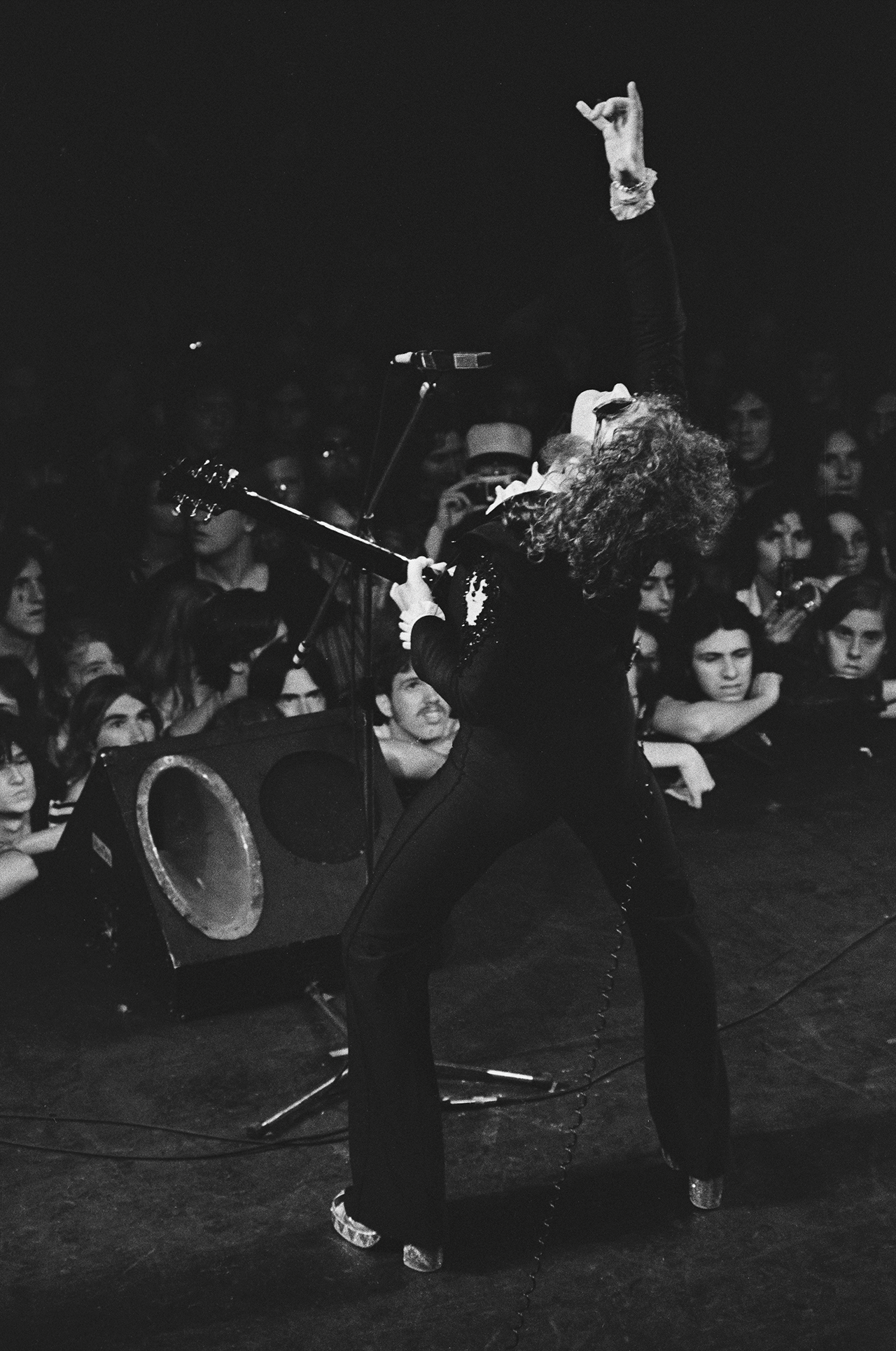
What did your parents make of your career choice back then?
Mum was a typical mum, she loved everything. My dad was a [Robert] Burns fanatic, so he wasn’t too impressed. Until I wrote the book [Diary Of A Rock’N’Roll Star, published in 1974]. Him and his brother could stand up and spout Burns. When I was a kid in Scotland you had the kitchen, the living room and the room-bed, which was all one room, and then there was a separate bedroom. I was in the room-bed, and I’d hear them going at it all night, spouting Burns. I’d think: “Why are you spouting somebody else? Why don’t you do your own?”
Between sixty-six and sixty-nine there are more gigs, you joined The Scenery, played behind Billy Fury, David McWilliams, Mickie Most even pops up with the New Yardbirds; more day jobs, from road-digging to journalism, a second child. The Summer Of Love happened, and you were grafting. Didn’t you ever think it might be easier to pack it in, or was your need to succeed intensifying?
Probably. I was pretty stupid. In those days you just followed your nose and hoped for the best. Youth’s great, you’ve got the whole world in front of you, you’ve got the energy and somehow you make enough money for rent and to pay for the kids. You just got by.
Somewhere along the line you adopted the sunglasses.
I was squinting all the time. So I went to the optometrist who said: “You’ve got a weak eye. Wear dark glasses. You’ll be alright.” I didn’t wear them all the time, but I wore them when I went down to see Mott at the audition because I thought it looked better than… Well, I was a bit fat and I had a corduroy two-piece on [laughs]. So I guess it was a vain attempt to look hip.
So because they worked so well for you at the audition, you decided to wear them forever?
Well, no, it wasn’t really me. If I took them off, the band would be like: “Stan [Tippins, Mott road manager], he’s got his glasses off!” And it became like I was always supposed to wear them. Mick Ralphs [Mott guitarist] would be the first to tell you that he didn’t like it if I took my glasses off, and Mick’s not really the most image-conscious man on the planet.
When you went for the Mott The Hoople audition you were approaching thirty. Did you think that this was to be your last crack of the whip?
I was living in the next street to [guitarist/singer] Miller Anderson, we were going to auditions together, and he got an offer to join Keef Hartley for sixty quid a week. The average wage then was about fifteen, so that was a big deal. So Miller was in, and I remember feeling dead jealous. Then about a month after that I got a call from Bill Farley, who ran Regent Sound in Denmark Street where Mott were auditioning various people. So I went down, and they gave it me. Well, they didn’t actually give me the job, it was more like: “He’ll do for now.” Guy [Stevens, Mott’s manager] liked me instantly, but the band weren’t sure at all. By the time Guy didn’t like me, the band were sure.”
Did Mott signing to Island equate to finally having financial security?
When I signed the initial thing with Island they took all my publishing and half my writer’s share in order to give me fifteen quid a week, most of which went to my first wife and the two kids to keep them going. That was a given in them days, you didn’t try to avoid that, that was the least you could do.
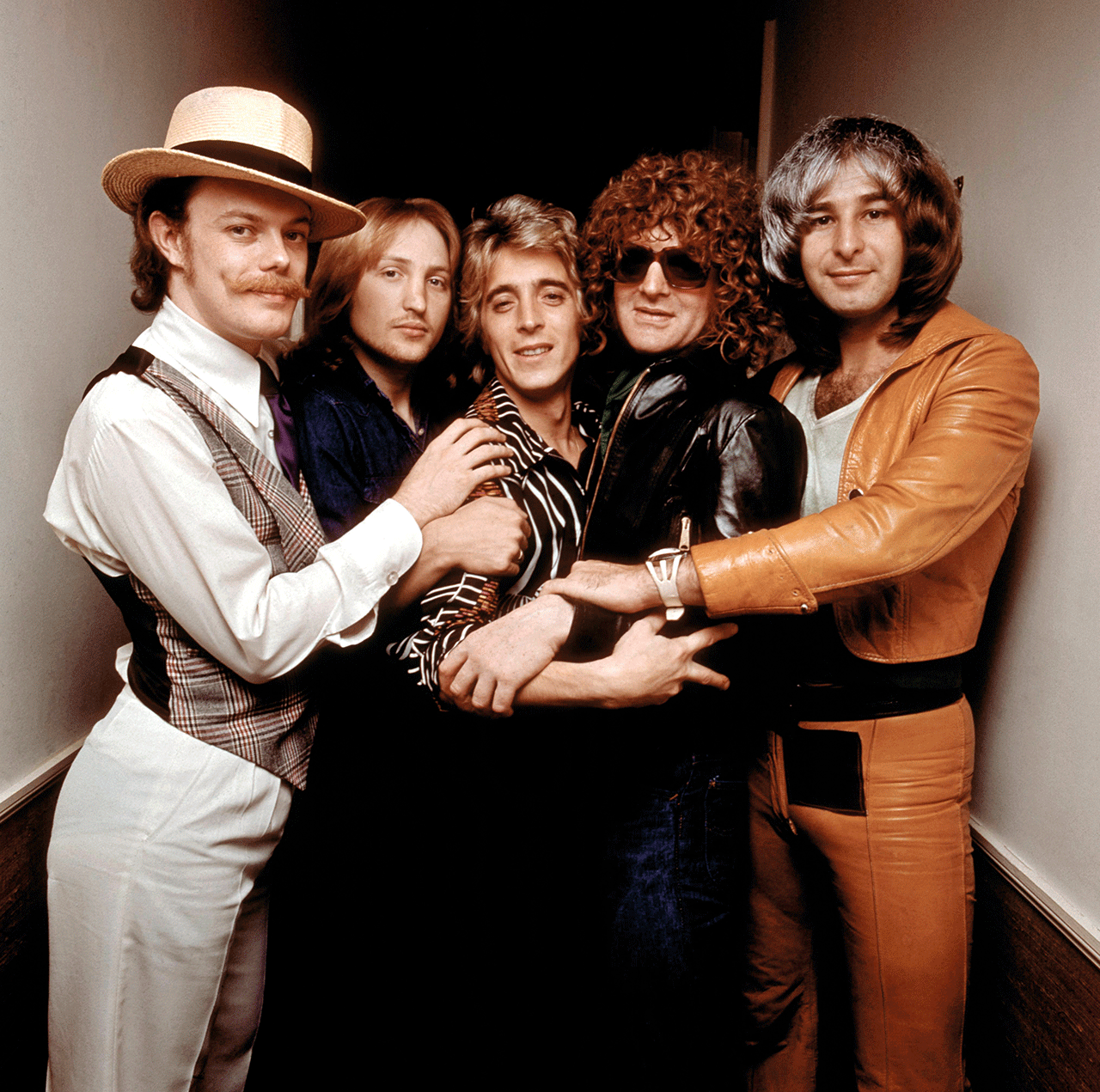
And a certain degree of exploitation was simply par for the course.
You’d speculate to accumulate. The labels weren’t queuing up. If there’d been three, maybe we could have swung a better deal, but there was only one, Island, which Mick Ralphs had engineered, and they had us by the balls. It was whatever they said or the factory Monday morning, so we signed. I never got a lawyer. I don’t really regret it that much because… Well, what was the other option?
Mott built a formidable reputation live, the critics were on-side, even the States got you, but you simply couldn’t translate that stage success into record sales. In retrospect was there an identifiable problem?
We were just learning. We’d no idea in the studio. Guy definitely didn’t. His idea was to wind you up into a total frenzy and then have you do a live gig in the studio, which is basically what we did. It wasn’t until we met David [Bowie] that we realised what could be done in the studio. Live we knew what to do, and we just did it. Plugged in, hoped for the best.
And there was an X factor with Mott. We never could figure out what it was, but it was there. Even in the early days opening for King Crimson and Free. Which was dispiriting, because they were huge. You’d think you’d gone down alright, and then you’d hear this roar when they came on. And it was like: “Oh, Jesus.” I always remember their roadies saying: “Don’t split, you’ve really got something.” Because up against those guys, we thought of splitting all the time.
It’s an often-told tale: Mott effectively pack it in after a dispiriting gig in Zurich, existing fan David Bowie pops up to save the day by giving you All The Young Dudes. But did he need to? Did you need the success of Dudes to put you in a place where you could write Honaloochie Boogie and All The Way From Memphis, or were those songs already waiting in the wings?
No, they wouldn’t have happened if it hadn’t have been for David. Dudes is a step apart. You don’t see many of them. And Mick [Ralphs] and I knew we had to find something to follow it, and of course the papers were saying, yeah, they can do somebody else’s song but they can’t do their own. And that was the added motivation we needed.
Your Dudes protagonist sounds infinitely more threatening than Bowie could ever have been. If I’d have been ‘You there, with the glasses’, I’d have been terrified, frankly.
We were doing the Rainbow, at Finsbury Park. And we had this thing where we’d always go quiet for ten seconds, and it always gave some arsehole at the back an opportunity to shout: “You suck” or equivalent thereof. Then it’d be: “Yeah, you’re his mates, bring him down the front.” They’d bring him down front and I’d pour a bottle of beer over him. That particular night, we came out of the Rainbow after the party at four a.m., and he’s outside waiting for an autograph in his sodden suit. Fast-forward a couple of weeks, we’re down at Olympic in Barnes doing All The Young Dudes, David’s sitting there going: “This is boring, One Of The Boys is the hit.” And we’re looking at him thinking: “Are you out of your mind?” He said: “The back end just keeps going round, nothing’s happening.” So all I did was take the Rainbow chat and apply it to the back end of Dudes.
Dudes was an entry point into rock for a lot of seventies lads, ex-skinheads who’d always considered glam a bit fey but were attracted to it because it was A Clockwork Orange via the football terraces, and you all looked a bit tasty.
We looked like bricklayers.
Which, on this occasion, kind of helped.
We looked to the Stones, we didn’t look to glam. We were dressing up to look flash. We didn’t dress up to look glam, but we were bundled in with it and got roundly criticised for not looking the part. But Pete [Overend] Watts, our bass player, loved all that. He invented the big boots and everything. Whatever Pete did, Gary Glitter did a month later. And the New York Dolls. Arthur Kane adored Pete; “Pete, you’re beautiful.” And the silver spray for his hair. “I’m not going on without it,” he said. So he went to the garage, came back with spray paint – not the stuff from the hair salon, the stuff you spray on cars – and sprayed it in streaks down both sides of his hair, and into his hairy chest. He would pull, too. Pete was a model boy.
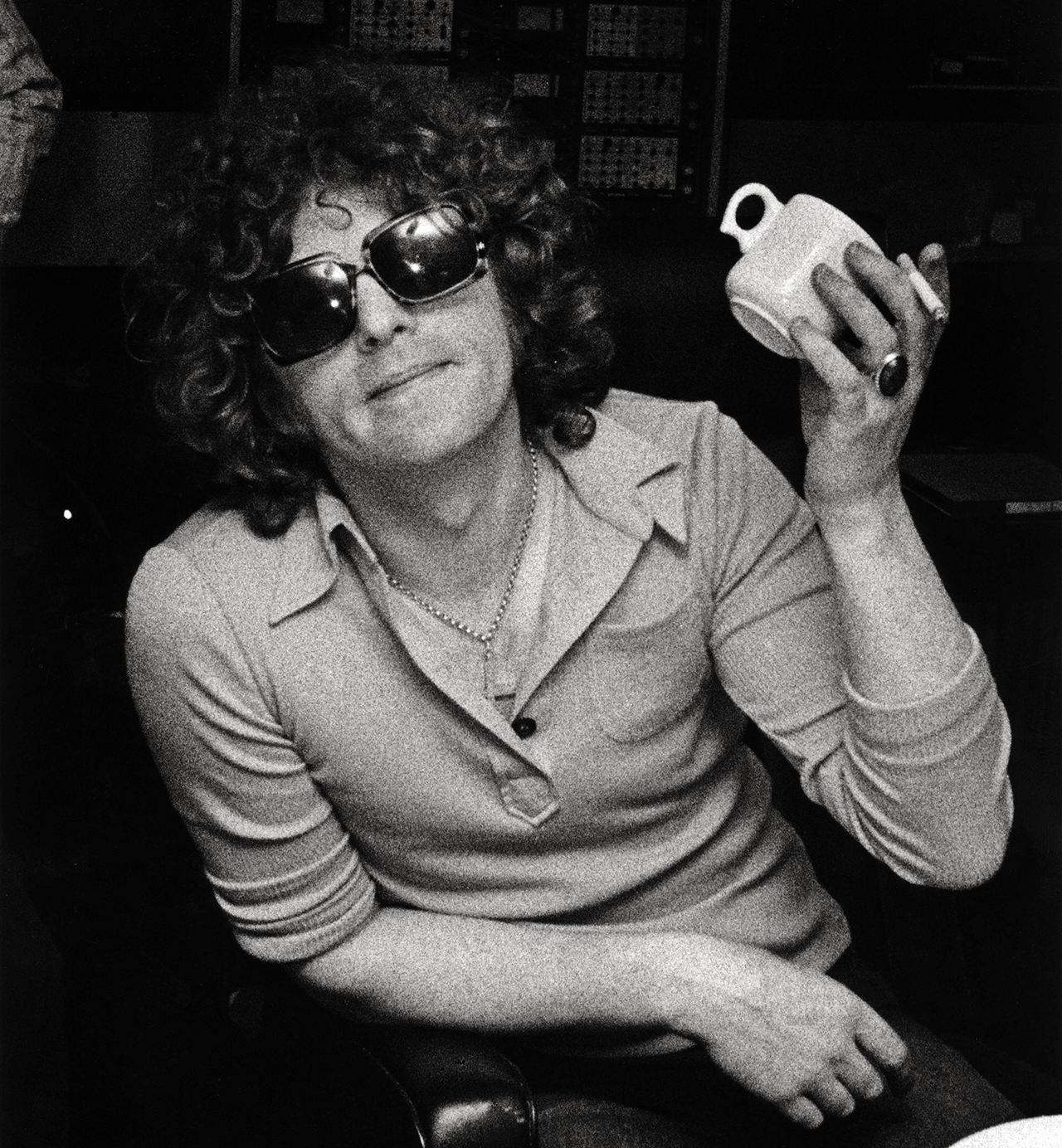
There was a swagger about Mott, and especially your good self, that appealed to lads. The future punk generation totally got Mott. So where did that persona come from?
I learned arrogance off of Jerry Lee Lewis. An audience by nature is masochistic, like a football crowd. If you go to a football game and the players actually come near you, your instinct is to shy back, because you’re not in full motion and they are. And Jerry Lee has a similarly intimidating energy and an arrogance that I love.
In seventy-one you got married for the second time. Looking back over forty-five years, how important has Trudi’s on-going attitude to your working life been?
She’s the business end of things. She also keeps me healthy. I honestly don’t think I’d be around if it hadn’t been for Trude. I’m lucky. Very lucky.
I’m guessing you got together around the same time as Mott’s pivotal Zurich gig. Was your decision to split the band partially motivated by your imminent second marriage?
No, but they were worried about her because she has strong opinions on everything. It had just run its course. Mott was too democratic. Every decision had to be passed five-nil. Normally three-two or four-one would be enough to swing a decision, but not with Mott, and there was always someone feeling left out. Nothing ever got done. David Bowie said to me: “You’ve got to take this band over.” So I went back to where we were in New York, and said: “Well, Dave says I’ve got to take over the band.” And Ralphs said: “Like fuck” and that was the end of that. I finally left Mott in seventy-four out of frustration and wanting my freedom. Mick Ronson was in the band. Me and him were getting on great and the other three didn’t like him. So I had to choose, and for me it was a no-brainer. I wanted to stick with Mick.
After three years of Mott struggle, you allowed yourself only two years of Mott success before splitting. From the outside the band’s conclusion seemed premature.
Well, Mick Ralphs had gone and he was having to do it. Luther [‘Ariel Bender’ Grosvenor, Ralphs’s replacement] couldn’t write anything we could use. Phally [Mott keyboard player Verden Allen] had gone, so it was developing into, as Mick Ralphs was fond of saying, a pop band. And he’s right. I’d have probably left if I’d have been Mick [Ralphs left Mott in seventy-three, and in seventy-four formed Bad Company with King Crimson’s Boz Burrell and Free’s Paul Rodgers and Simon Kirke]. I couldn’t sing his stuff, and Paul Rodgers was the best singer going, a blues rocker who suited Mick down to the ground. We tried, but I couldn’t do it. It was really unfortunate. I never thought it was the same after Mick Ralphs left.
But Saturday Gigs was a tremendous single to bow out on.
I was singing goodbye, really. What else can you do? Had that been a hit, I might have thought twice, but I was already in the States. I’d already been in hospital [shortly after recording 1974’s The Hoople album, Hunter had collapsed from exhaustion at a friend’s house] and I was out.
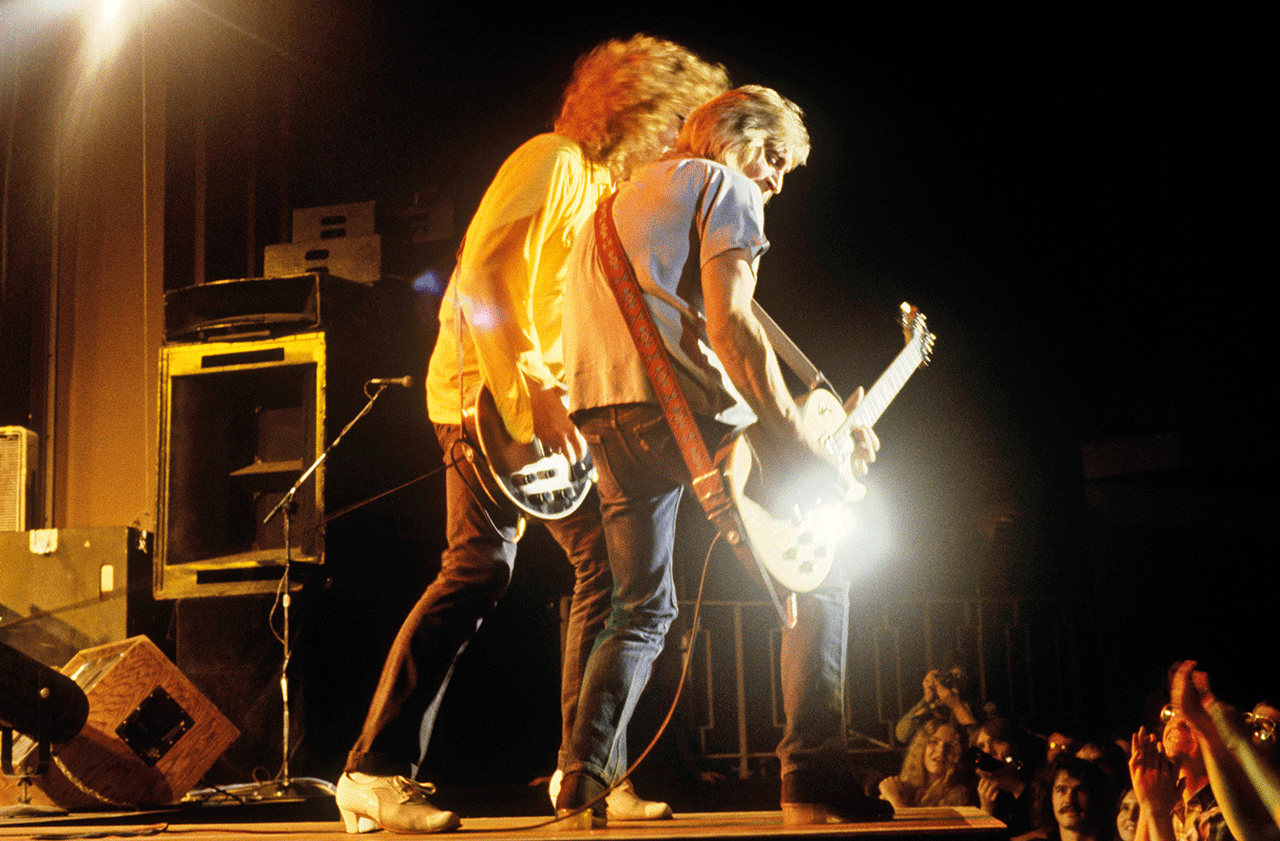
Once Bitten, Twice Shy was almost more Mott than Mott; you and Mick Ronson seemed like ideal collaborators and carriers of the flame. But All-American Alien Boy represented a huge leap: suddenly, sonically, we’re in New York City.
When I came out of the hospital I went to stay with Bobby Colomby, who was with Blood, Sweat And Tears. They’d toured Florida and come back with [jazz bass player] Jaco Pastorius. Later, Jaco came to stay with us in Chappaqua. I was asked: “Why do you just do rock’n’roll? Why don’t you do other stuff as well? Your lyrics are great.” So through Jaco we put all these people together – Aynsley Dunbar, a lot of New York session guys – and went down to Electric Lady [studios] every day for a fortnight. On the way down we came upon this jazz club where we picked up some more guys, including [saxophonist] David Sanborn. For me it was like an introduction to American music. Amazing. But for people like Joe Elliott in Sheffield it was: “What the fuck is that? This is supposed to be rock’n’roll.”
A year later, all change again, Earl Slick, Overnight Angels. Two years on You’re Never Alone With A Schizophrenic, The E Street Band, John Cale. Another two years, your hair’s off and you’ve got a member of The Clash on the firm. It was an almost Bowie-esque modus operandi. What was driving you to keep presenting your songs in different settings?
It’s anti-boredom more than anything. You do the one thing, then you want to do the next thing. I’m not too happy with Overnight Angels, a pretty poor attempt to get back into rock. If Schizophrenic was when I got it right, Overnight Angels was when I got it wrong. But I didn’t really care. I found that after the initial shock of taking a dive with Alien Boy I liked where I was. I felt less pressure, didn’t feel so bad. As I said, I’d been in hospital. I get this gut thing – it’s nerves and it builds up – and I wasn’t getting it any more. I felt a lot better. Now it was like: “Well how do you work at this level and still pay the rent?” But over the years we slowly got the hang of hovering on the periphery
You had a significant lay off between All Of The Good Ones Are Taken and YUI Orta.
In the eighties it got so corporate I thought: “This ain’t music any more. This is a joke, this is Loverboy, this is Styx, this is garbage, and it’s fooling people. Three nights we opened for Styx in Indiana, ten thousand people. They didn’t even need us on the bill, it sold out before we were added to the bill. And thirty thousand students, people who had brains, went berserk to Styx, and I knew perfectly well that they were a pile of junk. I like Tommy Shaw, but the rest of it was a joke. That was dispiriting, and I think that’s where I sort of ground to a halt.
YUI Orta should have been more of a beginning rather than a conclusion for the Hunter-Ronson collaboration. Do you see any reason why the two of you wouldn’t still be working together if the fates hadn’t stepped in [Ronson died of liver cancer in 1993, aged 46]?
Look, I love Mick. Our kids grew up together. We lived together for a long time. But we’re both lazy, and that would have been my only reservation about having stuck out with him. When we were together it was great for the first bit, but then we’d leave it at that, because we were too lazy. In other situations people would motivate him, or motivate me, but we weren’t good for each other. We drank and smoked and congratulated each other on how we weren’t drinking and we weren’t smoking [laughs]. But I loved the guy. I still do.
Kindred spirits?
Oh yeah. When I was with David, throughout the whole thing, I instantly took to Mick. We were from the same background. There was definitely something other-worldly about Dave, but with Mick I just felt he was one of my mates straight away. When Mick died it was such a shock. I was like: “Do something. You can’t just fart around here. Look what happens.” So really everything I’ve done since has been due to Mick’s untimely death. It shocked the shit out of me, I never realised that death was that near, or what could happen.
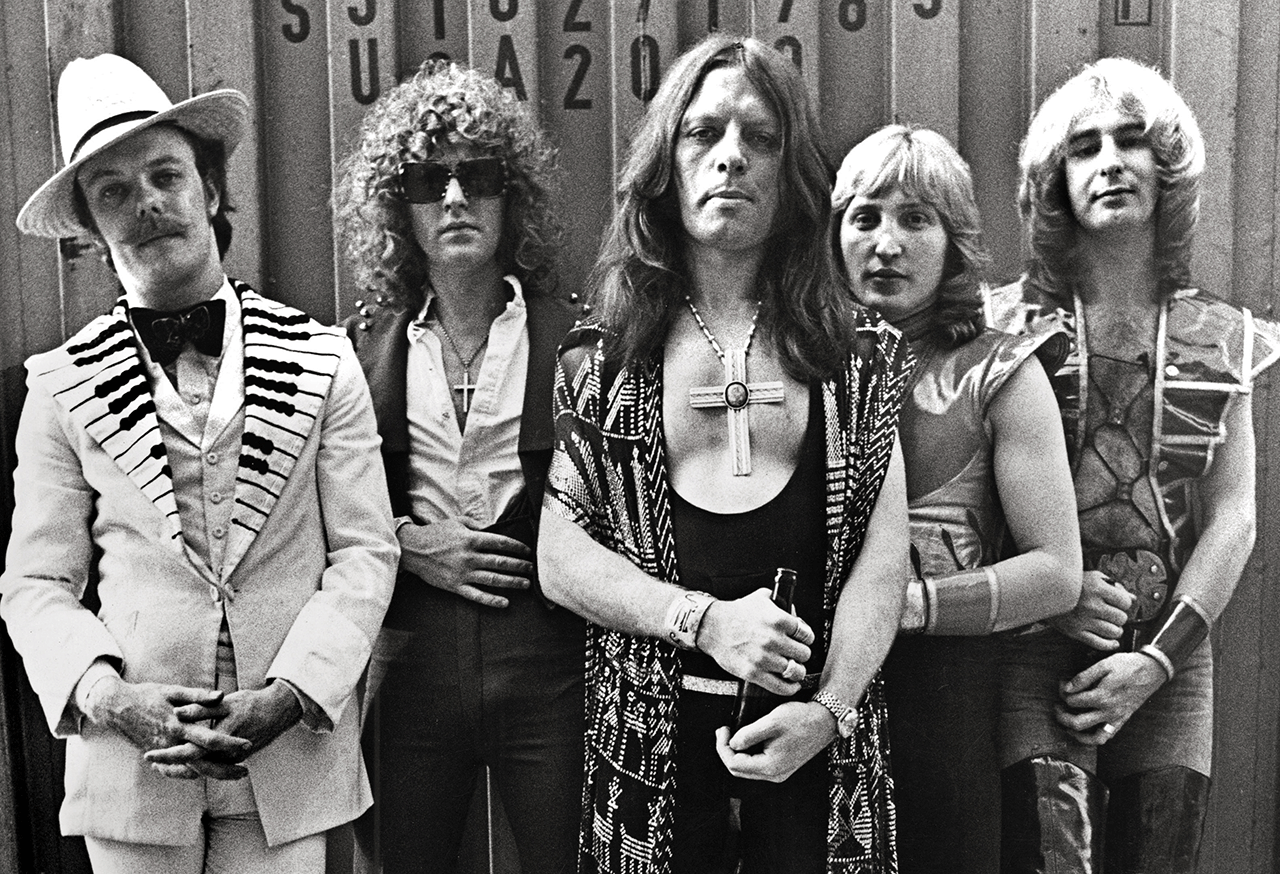
How did Dirty Laundry come about? Did its recording inspire you to write the material for The Artful Dodger?
When Mick died, I thought I’d take the first thing that came through the door, because I wasn’t happy, at all. Two years from when Mick rang me and told me he was sick, Casino Steel rang up from Abbey Road and told me he was going to do an album of Mexican folk songs. I thought: “Great”[laughs]. The money was great, so I decided to do it.
I got down there, and it’s Vom, Darrell Bath, Honest John Plain, what a bunch of characters. They said: “That’s the drummer” – a bloke with green hair, three feet tall. Can’t even reach the floor [laughs]. Mexican folk songs sounded good from a distance, like a holiday, but the nearer I got… well, I dunno. So I gave Honest John fifty quid, and a week later we had ten songs that bore no relation to Mexico whatsoever. But we had a fantastic time and Darrell and John came up with some good stuff. They were fantastic. They played a pub around the corner. I wasn’t involved, but I went. And the NME was there. Of course, Vom decided to faint completely in the gutter outside the pub. And the guy from the paper’s asking me: “Who’s in your band?” So I point down at Vom: “Well, he’s the drummer” [laughs].
Your work with Mott inspired a certain amount of devotion in those you inspired, many of whom ended up at the forefront of the punk movement; as well as the boys behind Dirty Laundry you’d worked with Mick Jones on Short Back N’ Sides.
Round about seventy-five, just before punk came in, we were supposed to be out. So all the press said we were out. Then the punk bands arrived and said no, they’re great. So the press had to do a U-turn. I loved that. I went down the Roxy with Mick Ronson, and he had to do a runner, they weren’t accepting him, but I was fine.
From Rant onwards you seem to be focusing more on the songwriting craft than finding ever new ways to present your material. Are The Rant Band the best vehicle you’ve ever had for your material, better even than Mott?
I’ve never quite understood Mott. I think Mott was five stars. They were all stars in their own right, so there was a lot of arguments. And Pete was extremely eccentric, which is great, but it’s also awkward. Phally’s deep, Welsh, strange. With the Rant boys, they’re just great musicians and they’re logical. They’re not eccentric, they’re not strange, so you can’t really compare. For me it’s fantastic what’s going on now. And we don’t argue, we never did. It’s always great with the Rant Band, and over the years it’s gone Zen-like, especially recently. It’s solved my problems because, if I’m lost halfway through the song, they make it work, they figure out what’s gone wrong. So the front row are quite perplexed, but apart from that nobody notices.
Looking back on your not insubstantial achievements, would you recommend rock’n’roll as a rewarding career path for a young man to follow?
I don’t know. Everybody’s different. I was a fan. I didn’t think I could sing, I didn’t think I could play. And slowly, through flukes and a series of unlikely episodes, I managed to wind up making a living out of it. But I can’t really recommend it to anybody, especially now. But there’ll always be a place for it. So be yourself, be individual. I copped off people initially, but you’ve got to find your own thing. That’s all you’ve got, really. And if it’s strong enough, maybe you’ve got a market.
Do you remember when you first realised that writing about your own life experience was such an effective vehicle for communicating with your audience?
Well, I think what happened was that we had a working-class audience and I was working class. I worked in factories, I was down the pubs at the weekends, I wasn’t very bright, and so what I was writing they related to, because I didn’t leave school and join a pop band. I’d done what they were doing and speaking that language. I don’t any more, probably, but we still seem to get on, we’ve grown old together.
And, ultimately, was all the grafting worth it in the end?
Oh yeah. It still is. I love it. At fifteen my dad thought I was hopeless, the teachers thought I was crap, I had no personality, nothing. Rock’n’roll gave me everything. I wouldn’t swap it for the world.”
Ian Hunter: not-so-young dude
Ian Hunter - The 10 Songs That Changed My Life
Buyer's Guide
